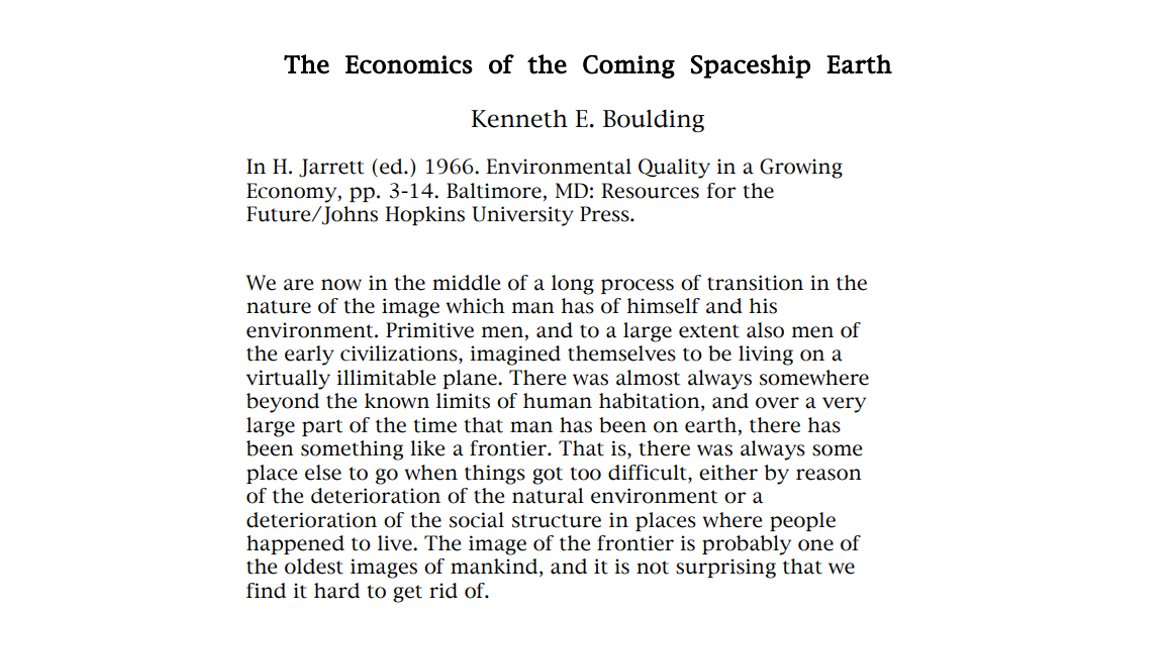
Ecological economist. Research and Data Analysis @DoughnutEcon. Exploring a good life for all within planetary boundaries at https://t.co/OywIfufUdV
How to get URL link on X (Twitter) App


 2. In Defense of a Steady-State Economy (Daly, 1972)
2. In Defense of a Steady-State Economy (Daly, 1972)

 The study is based on the idea that the atmosphere is a commons–a natural wealth for everyone to access equitably and sustainably.
The study is based on the idea that the atmosphere is a commons–a natural wealth for everyone to access equitably and sustainably.
 @jaredmstarr That's not all. They find US household emissions for the bottom 99% *declined* by 14-23% from 1996-2019, depending on the decile.
@jaredmstarr That's not all. They find US household emissions for the bottom 99% *declined* by 14-23% from 1996-2019, depending on the decile. 



 The starting point is our 2018 study for a single year (with @DrDanONeill, @lamb_wf and @jksteinberger) doi.org/10.1038/s41893…
The starting point is our 2018 study for a single year (with @DrDanONeill, @lamb_wf and @jksteinberger) doi.org/10.1038/s41893… 
 Here’s a global picture of cumulative CO2 emissions since 1850. Humanity passed the ‘safe’ 350 ppm CO2 boundary in 1988, and the 1.5C boundary is fast-approaching. The net zero curve by 2050 is equivalent to global emission cuts around 8% PER YEAR. Globally. 😱
Here’s a global picture of cumulative CO2 emissions since 1850. Humanity passed the ‘safe’ 350 ppm CO2 boundary in 1988, and the 1.5C boundary is fast-approaching. The net zero curve by 2050 is equivalent to global emission cuts around 8% PER YEAR. Globally. 😱 

 The starting point is the brilliant analytic framework created by @JKSteinberger, @DrDanONeill and @lamb_wf that proposes the concept of ‘provisioning systems’, which mediate the links between resource use and social outcomes... 2/
The starting point is the brilliant analytic framework created by @JKSteinberger, @DrDanONeill and @lamb_wf that proposes the concept of ‘provisioning systems’, which mediate the links between resource use and social outcomes... 2/